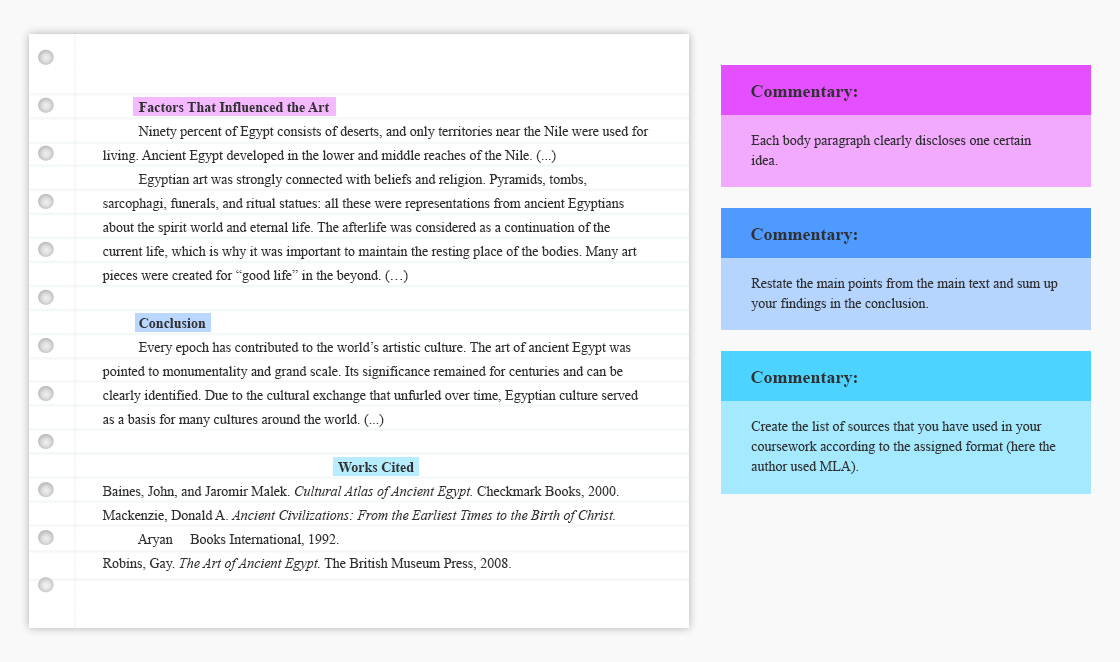When you’re wondering how to write a good coursework conclusion, there are some important things to keep in mind. First of all, the conclusion of your coursework shouldn’t introduce new ideas. That is the job of the introduction. Instead, the conclusion should suggest things that have been presented in the introduction. Its final line will connect back to the introduction and offer closure to readers. A few key pieces of advice to follow:
Rephrase the introduction
Many students rephrase the introduction to write a better coursework conclusion. While it is a common practice, it is not a good practice to repeat the exact content of the introduction. After all, the purpose of the introduction is to set the stage for the discussion, not to repeat it. The introduction is for setting up your argument, while the conclusion is for giving your readers a clear sense of closure.
The introduction should highlight the central questions that you wish to answer in the body of the essay. If the introduction is lacking coherence, the entire essay won’t be cohesive, despite its content. You should have prepared an introduction beforehand and rephrase it accordingly. Then, you will have enough material for writing the conclusion. However, don’t forget to make the conclusion as engaging and interesting as possible.
Using a funnel structure is a helpful way to structure your introduction. While your introduction begins broad and continues to narrow in on the central theme, the conclusion is more specific, and lays out the main points that you emphasized during the body of the essay. In addition, it can include the implications of your findings for social change or future research. It is essential to remember that the introduction is only one-third of the overall paper.
Avoid cliche conclusion sentence starters
Among students’ favourite conclusion sentence starters, the thesis statement, is often the most common and cliched. Avoid using these in your coursework, speeches, and assignments. Moreover, avoid using the same phrase for both your introduction and conclusion. Instead, try to make the sentence shorter and clearer by including evidence and arguments that come from the body of your work. This way, you can give your readers a sense of closure.
Generally, cliches have more than one meaning. They can also be long-winded ‘fillers’, used to pad out writing and maintain the flow of speech. When writing an essay, make sure to avoid overused phrases as they add to the length and do not improve your work. This is especially true of essays. Avoid cliche conclusion sentence starters in coursework by following the rules outlined below.
Avoid introducing new ideas
When writing a coursework conclusion, you should not introduce new ideas. It is the body of the paper that introduces new concepts and ideas. Instead, the conclusion should sum up the main points of the paper. You can make recommendations, but avoid introducing new ideas. In the introduction, you introduce new ideas, and the conclusion is for recommendations only. In the body, you introduce new ideas, but in the conclusion, you highlight the main points of your paper.
Avoid externalization
The main purpose of a good coursework conclusion is to summarize and bring closure to the paper. To achieve this goal, the writer should avoid externalization. This technique is common in essays that approach a specific part of a complex subject. In such cases, the conclusion is a transitional element that carries the essay to a different topic or even into a new essay altogether. While an externalized conclusion is acceptable in some circumstances, it is not advisable to use this technique in most situations.

